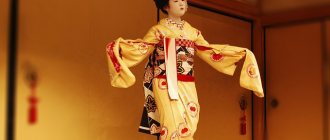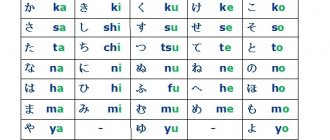The traditions of the Japanese people are considered the most unusual in the civilized world. This is explained by the long-term self-isolation of the Land of the Rising Sun from other states. And today in Japan it is difficult to perceive the customs, morals, culture and values of Europeans.
It is difficult to imagine that in this ultra-modern power with a highly developed infrastructure, the local population does not gesticulate in conversation and is afraid to approach the interlocutor at close range. It is even more difficult to imagine that clean Japanese families bathe without changing the water in the bathroom.
What other Japanese traditions and rituals deserve attention? Briefly about interesting customs - below.
Why is Japan so protective of its traditions?
Europe was able to get to know this eastern country better not so long ago. For two and a half centuries, Japan was closed from the eyes and visits of foreigners. Probably because of this, European influence did not take over the ancient Japanese customs and culture of the people as much.
Since the 1600s, during the reign of Ieyasu Tokugawa, who finally united the country and headed the shogunate, there has been a long period of people being closed to foreign views.
Shogun Ieyasu Tokugawa
The ruler, although he maintained trade relations with different countries, was very biased and suspicious towards foreigners. It is known that since 1635, after the decree of the Supreme Leader, the Japanese were forbidden to travel outside the borders of their homeland, and foreigners were only allowed to stay on the island of Dejima.
Only in the Meiji era does the time of change and radical reform begin. It was then that, since 1868, a closed country emerged from isolation and became a large developing state. In a short period of historical time, it adopts all the innovations of the West, modernizes and improves. In turn, European peoples pay attention to the culture of Japan and introduce elements of the East into their culture.
Examples of tea rituals
This is Japan. The traditions have been established for a long time. Here are examples of tea ceremonies:
- Night - this ceremony begins under the moon around 23:30. Guests must leave the house no later than four in the morning. Powdered tea is brewed and served from crushed tea leaves. It can only be drunk after a meal, so guests are treated to delicacies before drinking tea.
- Rising Sun - held around 4 a.m., guests stay until 6:00 a.m.
- Evening – starts around six o’clock in the evening.
- Morning - at six o'clock in the morning, especially popular in the heat.
- Afternoon – in the afternoon, accompanied by a serving of cakes.
- Special - guests gather for an occasion. This could be a holiday, a simple meeting, or a change of season.
According to the Japanese, such rituals educate a person. They make it natural, neat, simple and sociable. This is true, but there is another subtext to all this. The ceremony accustoms people to order, diligence, and observance of social rules. This is the basis for the education of national feelings.
Rules of conduct and etiquette
First of all, let's talk about etiquette customs, since the Japanese are very respectful of etiquette rules.
The Japanese value hospitality. And here you need to know certain things so as not to offend a person. For example, handshakes are not accepted here, and bowing is considered the highest measure of respect for a person.
It can be used to express:
- greetings,
- parting,
- humility,
- apology,
- respect.
Residents bow when they meet, even if they have already met the person several times a day. You may notice that even while riding a bicycle, Japanese people often bow to each other.
Interestingly, the level of respect shown depends on the depth of the bow. They bow easily and not low to a stranger or unfamiliar person. This is a quick bow. This is how you greet a store clerk, a waiter, or a neighbor with whom you are not on friendly terms. Bows below are used for bosses. They bow very low when greeting the presidents of the company, and in personal relationships, people who are very respected by the Japanese: old people, people higher in rank and status.
The foreigner must also bow back to the Japanese. At the same time, looking directly into the eyes is considered offensive; you should look down.
Today, young people bow less often, replacing farewells with the word “bye.” This way, they can better emotionally express feelings of love for friends or sadness over a breakup.
Everything in one bathroom
The cleanliness of the Japanese people is a custom about which hundreds of articles and messages have been written. Personal hygiene among local residents comes first, but the whole family takes a bath one at a time, without changing the water.
Championship - the eldest, the youngest family member will be the last to dive into the water. If the size of the bathroom allows, 2-3 people can be immersed in it at the same time.
It’s not surprising if you ever see how this happens. The baths of the local population are more like small pools. Before entering them, a person takes a shower, washes off the dirt from the body, and then continues the ritual in the bathroom.
There is nothing reprehensible in the fact that brothers and sisters bathe at the same time - they enter the bath in swimwear.
Communication
Despite the fact that the country has become one of the destinations for tourists, indigenous residents are extremely reluctant to meet foreigners. Communication often takes place through an intermediary, as they may feel uncomfortable talking to a stranger.
You should address a person by calling his position or surname with the prefix “san.” Calling your interlocutor simply by name is considered bad manners and is allowed only to those closest to you. Residents use the prefix “chan” when talking with children and close friends; they often pronounce it when calling their dog and other pets by name.
Of course, in recent years, adhering to these etiquette factors has become less of a strict rule. However, in formal situations, when addressing higher authorities and older people, traditions are still respected.
Path of the Gods
The main tenets of Shintoism, the original religion of Japan, were the origin of the imperial family from the Sun Goddess and, as a consequence, the divinity of the emperor himself. Although divinity was denounced after World War II, the emperor remains the figurehead of Shinto.
An important component of the “Way of the Gods,” as the name of the religion is translated, is the deification of nature in all its manifestations. The sanctuaries are located in the most picturesque places: on mountain peaks, in forests, where divine spirits are believed to inhabit waterfalls, unusual rocks and large trees. Believers express their veneration to the gods through ritual purification rites.
Shinto is a less formal religion than those to which the Western world is accustomed. The commercial activity around Tokyo's Asakusa Shrine creates the atmosphere of a country fair. In the sanctuary, people clap their hands to attract the attention of the gods, bow respectfully, drop coins into a box with slots and offer prayers. Then they head to the food stalls, attractions and souvenir shops operating here on the territory of the sanctuary. In few other countries do religion and commerce coexist as harmoniously.
Politeness
It is indecent to talk on the phone or talk too loudly in transport. A strong aroma of women's perfume, eating in a subway car or other public transport is considered disrespectful to others.
If a Japanese man who is older than you gives you a gift, you should definitely show your respect by touching his hands.
When speaking, it is impolite to look people in the eyes, cross your arms, or cross your legs. The correct thing to do is to look at the interlocutor's neck area.
Yawning, chewing gum and blowing your nose in public are considered the height of indecency here.
Before throwing away the napkin, you need to fold it carefully. In the country, the habit of order and cleanliness is instilled in people from childhood.
But it is not customary for the Japanese to give up their seat on public transport. This is due to the peculiarities of their mentality. The Japanese believe in karma, and when offering help, they do not want anyone to feel obligated to them.
Guests – away from the door
Since we are talking about guests in the house, it is appropriate to recall the customs of the people associated with them. In Japan, the places farthest from the door are considered honorable. The owners give them to the guests. The same rule applies in offices, seminars, conferences, and other scientific and business events.
It is not customary to invite strangers home in the Land of the Rising Sun; most often, meetings are organized in restaurants or cafes. This is more convenient, because local residents live in cramped apartments located far from the city.
In houses where the customs and traditions of the Japanese people are respected, the owners prudently stock up on special guest slippers. Other slippers are provided for the toilets - it is customary to remove the slippers for the toilets. And you are allowed to step on the tatami only with bare feet - in no case with shoes.
While pouring alcohol and soft drinks for yourself is considered normal among Europeans, it is not accepted in local culture. Your neighbor at the table should pour the contents into the glasses. The presence of liquid in a glass, even in a small amount, is a sign that a person no longer needs to pour.
Gestures
The Japanese love to use various symbolic gestures in their daily lives. For example, when taking pictures, the Japanese like to show a “V” with their fingers. They fold their hands in front of their chests and express their regret.
If a person touched his nose, then at the moment of speaking he meant himself. A gesture that in the West means “OK” here speaks of money.
If a man meets a lady in the evening, he can show his little finger. But in relation to girls, this gesture is considered vulgar.
The cult of the intimate side of life
They specifically relate to the topic of sex. Every bookstore has shelves with literature on this topic. In addition, Japanese art is replete with sex scenes. There was not a hint of a bad attitude towards sex in the ancient monuments of Japanese culture.
Cultural critic Yeneyame Toshinao says the tradition of openly depicting this topic has survived in literary works to this day because in ancient times sex was not considered an original sin, as, for example, in Christian culture.
Food culture
The Japanese attach great importance to food culture and eating. Serving plays an important role. Dishes and special decorative decoration for a lunch or evening table are valued here. Before eating, be sure to wipe your hands and face with an oshibori napkin soaked in hot water.
All dishes are served immediately, but various utensils are also placed on the table at the same time as the food:
- braziers,
- alcohol lamps,
- spice sets,
- additional dishes.
Chopsticks should be placed on a special stand - “hashioki”. Under no circumstances should they be crossed or stuck into a bowl of rice during a meal - this gesture is associated with death due to the fact that this is how gifts are presented to the spirits of the dead.
You also cannot transfer food from your chopsticks to your interlocutor’s chopsticks. Buddhist custom says that in this way the remains of the deceased are transferred from hand to hand during burial.
A few quick interesting facts
- While we wear braces to straighten our teeth, Japanese youth ask dentists to have them crooked. Namely: make the fangs elongated and protruding forward. The procedure is not considered cheap and will cost the Japanese $500. However, the clinic plays it safe by performing the operation in such a way that the teeth can be restored to their previous appearance.
- Cleaning in schools, both in classrooms and throughout the building, is carried out by the students themselves. It is assumed that by caring for their place of work, the Japanese develop responsibility and hard work from childhood.
- In the country you can adopt an adult, mostly a man. This is often done by rich people and businessmen who do not have a successor, but need to pass the business on by inheritance.
- If a company fires a Japanese person, the company pays him a large penalty. Entrepreneurs have come up with an interesting move: they set up a so-called “idleness room” in offices or enterprises, in which workers are simply forced to do boring and useless work. After several months of such “laziness,” employees quit on their own, so the company does not have to pay them money.
- Workers in the service sector - taxi drivers, cleaners, porters, waiters - do not take tips. They will find it insulting if they are offered money. Thus, in Japan they believe that serving the client is a priori included in the payment for any service and additional money is not accepted.
- It is interesting to note that KFC cafe is very popular among the Japanese. For example, on New Year's holidays there are long queues in front of the cafe. Some residents reserve a place a couple of months in advance so that they can eat chicken wings and drink a glass of wine during this time.
- In Japan there is a very interesting job of "oshiya", or "pusher" in the subway. Due to the huge number of passengers on trains, workers literally have to push people into the cars. Therefore, part of the population prefers to get to their destination by bicycle, scooters or roller skates.
It is worth noting that the position of “pusher” exists in many eastern countries due to the large population in them.
- If you fall asleep at work, you can get praise from your boss. The point here is this: it is believed that if an employee falls asleep at work, then yesterday he stayed late at work and did not get enough sleep, which means he is completely devoted to the company and deserves encouragement.
The child is the king. Up to 5 years
Japanese family traditions are no less interesting than the rules of etiquette. Children are always a blessing, especially if a boy is born. Adults indulge the child in everything, do not scold him, the mother is always nearby, surrounding him with care and love.
Perhaps this is why newborns in this state practically do not cry. Little Japanese rarely go to kindergartens because the service is expensive. And a mother who returns to work prematurely from maternity leave will not find support in the team.
The royal life of the baby continues until he turns 5 years old. The child goes to school, and from that moment the lifestyle changes radically. Now he will face strict adherence to the daily routine, submission to the demands of teachers and parents, and strict disciplinary frameworks. It is believed that “hedgehog gloves” will prepare the younger generation for adult life.










